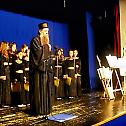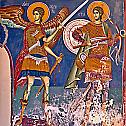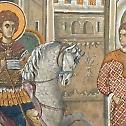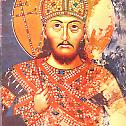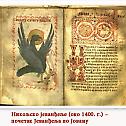Culture
Spiritual academy about the Cyrillic alphabet in Bijelo Polje
18. July 2011 - 10:00Regarding the celebration of the feast day of Holy Apostles Peter and Paul, the Patron Saint's Day of the church Holy Apostles and the city of Bijelo Polje, on Sunday, July 10 with the blessing of His Grace Bishop Joanikije of Budimlje-Niksic in the Bijelo Polje cultural centre, the spiritual academy devoted to the Cyrrilic alphabet was held.
Source: Diocese of Budimlje-Niksic
Serbia Land of the Frescos, a travelling exhibition
18. July 2011 - 8:20The Gallery of Frescoes of the National Museum in Belgrade will be exhibiting facsimiles of medieval and Byzantine Serbian frescos and sculptures at the Basilica dei Santi Apostoli in Rome from 6 July to 29 July 2011.
Google logotype on Tuesday was dedicated to the 450th anniversary of St.Basil's Cathedral
15. July 2011 - 16:04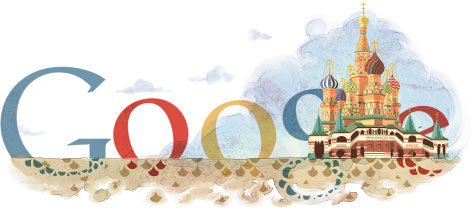
A Google Doodle marked on Tuesday, July 12, 2011 the 450th anniversary of St. Basil’s Cathedral in Russia. The famous Russian landmark, which features nine multi-colored onion-shaped domes and is located outside of the Kremlin in Moscow’s Red Square, replaces the “l” in Google’s famous logo.
British Library Trying to Buy Ancient Gospel
15. July 2011 - 12:26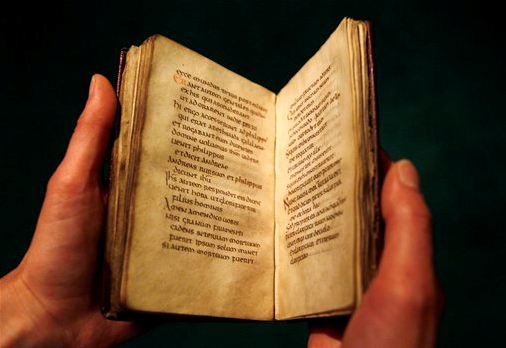 The British Library has announced a £9m bid to save the 7th Century St Cuthbert Gospel - the earliest surviving European book - for the nation.
The British Library has announced a £9m bid to save the 7th Century St Cuthbert Gospel - the earliest surviving European book - for the nation.
Free Access to the Site of Christ's Baptism Opened
14. July 2011 - 13:31The Israeli authorities have opened free access to for tourists and pilgrims to the place on the Jordan River at Kasr Al-Yahud, a site sacred to Christians all over the world, where, according to the Gospels, our Lord Jesus Christ was baptized.
Previously, special permission and agreements were required from the military in order to visit the site of Christ's baptism. This will no longer be necessary.
Private libraries of the Serbs in Middle Ages
13. July 2011 - 13:20Court, royal, aristocratic and other private libraries, such as the library of Emperor Constantine II, Patriarch Photius or his follower and disciple Aretas in Byzantium, were not unknown in the medieval Serbia. Attempts typological definition suggest the conclusion that, similar to the Byzantine and Western European medieval tradition, in the Serbian lands clearly stood out two types of libraries: private and monastic. In the first group there are included: royal libraries or the library collections of rulers, nobility, and later wealthy citizens, while the second group includes the collections at the churches, monasteries and their hermitages. The fall of Despotate (1459) and the Turkish yoke ended an announcement of the epoch of humanism and the Renaissance of the Serbs, which was reflected in the development of a number of private libraries.

